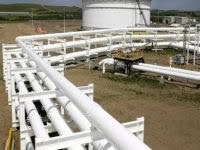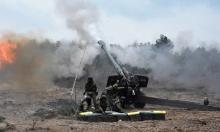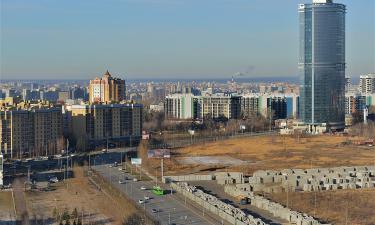Russia's valuable ESPO oil
The Russian ESPO blend was created especially for the pipeline with this name. It is Russia's best blend, light and low in salt chloride content.
According to specialists, the ESPO blend will become the official blend, dominating the world market in the next decades, as this type of oil is superior to others. It will set the world's new oil price standard, a benchmark crude with prices determined as a result of trading on the exchange, experts say.

by Olivia Kroth
ESPO (Eastern Siberia - Pacific Ocean) oil flows from the port of Kozmino, near Vladivostok, to China through the East Siberia - Pacific Ocean pipeline. ESPO oil is highly valued in China, because it is of superior quality and has only a short time to travel, three to five days, which reduces its costs considerably.
China is ready to service the oil trade with Russia in Yuan, which will be the end of the petrodollar in Asia. China's demand for oil has been growing steadily in the past years. The country has planned to increase the flow volume through the ESPO pipeline.
Contracts between Russia and China were already signed in Vladivostok at the APEC Summit in September 2012. Chinese banks and telecommunications systems will service the oil export/import operations with the Russian neighbour and business partner.
Russia's ESPO oil reserves are large, the quality of the blend is stable and the transport capacity has been increased considerably. Because all of the conditions are met, ESPO enjoys a high reputation in Asia, as the global oil market is moving east.
China and Russia are in an excellent position to make ESPO oil the new benchmark crude, traded in Yuan. The oil price is to be determined by a stable supply from Siberia and the growing demand in Asian countries.
The oil port of Kozmino is located near Nakhoda in Primorsky Krai, close to Russia's borders with China and North Korea. It is the terminal point of the Russian Eastern Siberia - Pacific Ocean pipeline. Large tankers with 100.000 deadweight tonnes come to Kozmino each day to load ESPO oil.
In 2012, 15 million tonnes of ESPO were sold on the world market. Another 15 million tonnes were pumped to China through the ESPO pipeline. Thus, total ESPO sales in 2013 amounted to 30 million tonnes.
ESPO oil comes mainly from three fields in Siberia: Talakanskoye, Vankorskoye and Verkhnechonskoye. The starting point of the ESPO pipeline is Tayshet near Irkutsk. The first section, opened in 2009, is 2.700 kilometres long, linking Tayshet to Skovorodino in the Amur region.
The second section, opened in December 2012, links Skovorodino with Kozmino. This part has a length of 2.000 kilometers. With the entire ESPO link in operation since January 2013, Russia's annual ESPO export shall reach 80 million tonnes.
Tayshet, in Irkutsk Oblast, was founded in 1897 as a station of the Trans-Siberian Railway. In 1938, it was granted town status. Today, Tayshet, with a population of 35.500 inhabitants, lives from the ESPO oil business.
Generally, ESPO has helped to boost the infrastructure of Siberia and the Russian Far East. The ESPO pipeline is operated by Russia's Transneft, a state-controlled company, founded in 1993.
Transneft owns the largest oil pipeline system worldwide. The total network length is 50.000 kilometres. Headquarters are located in Moscow. Transneft's Chairman is Nikolai Tokarev. Born in 1950, he graduated from the Karaganda Polytechnic Institute in 1973, and has been Transneft's president since 2007.
In January 2013, he informed President Vladimir Putin during a working meeting about the ESPO progress in 2012. The pipeline created 23.000 new jobs, directly involved in construction work. The average wage of the builders is 60.000 rubles. A qualified welder earns 100.000 rubles.
Nikolai Tokarev told President Vladimir Putin that Transneft plans to invest 160 to 180 billion rubles each year, from 2013 to 2015, to cover the ESPO investment programme. In 2013, four new oil pumping stations will be built to transport oil to the Komsomolsk and Khabarovsk refineries.
Furthermore, the already existing pipelines need constant repair work. Every year, about 1.000 kilometres of old pipelines are repaired because they are wearing out and coming to the end of their service lives.
The socio-economic impact is far reaching as well. According to information on the Transneft website, 20 residential houses with a total living space of 48.100 square metres have already been built for the ESPO project.
More housing has been commissioned for 2013 and 2014: 40 residential houses with 588 apartments in the Amur Region, the Autonomous Jewish Region, in Khabarovsky Krai, Primorsky Krai and the Sakha Republik (Yakutia).
Transportation infrastructure has also been developed by Transneft: roads, bridges and driveways along the pipelines. Transneft's total tax revenues into the federal budget from the ESPO system amounted to 2.2 billion rubles.
All in all, the Russian President, Vladimir Putin, and Transneft's Chairman, Nikolai Tokarev, are staunch defenders of Russia's vital interests, watching out carefully for the country's vast oil resources and infrastructure.
Prepared for publication by:
Lisa Karpova
Pravda.Ru
Subscribe to Pravda.Ru Telegram channel, Facebook, RSS!




